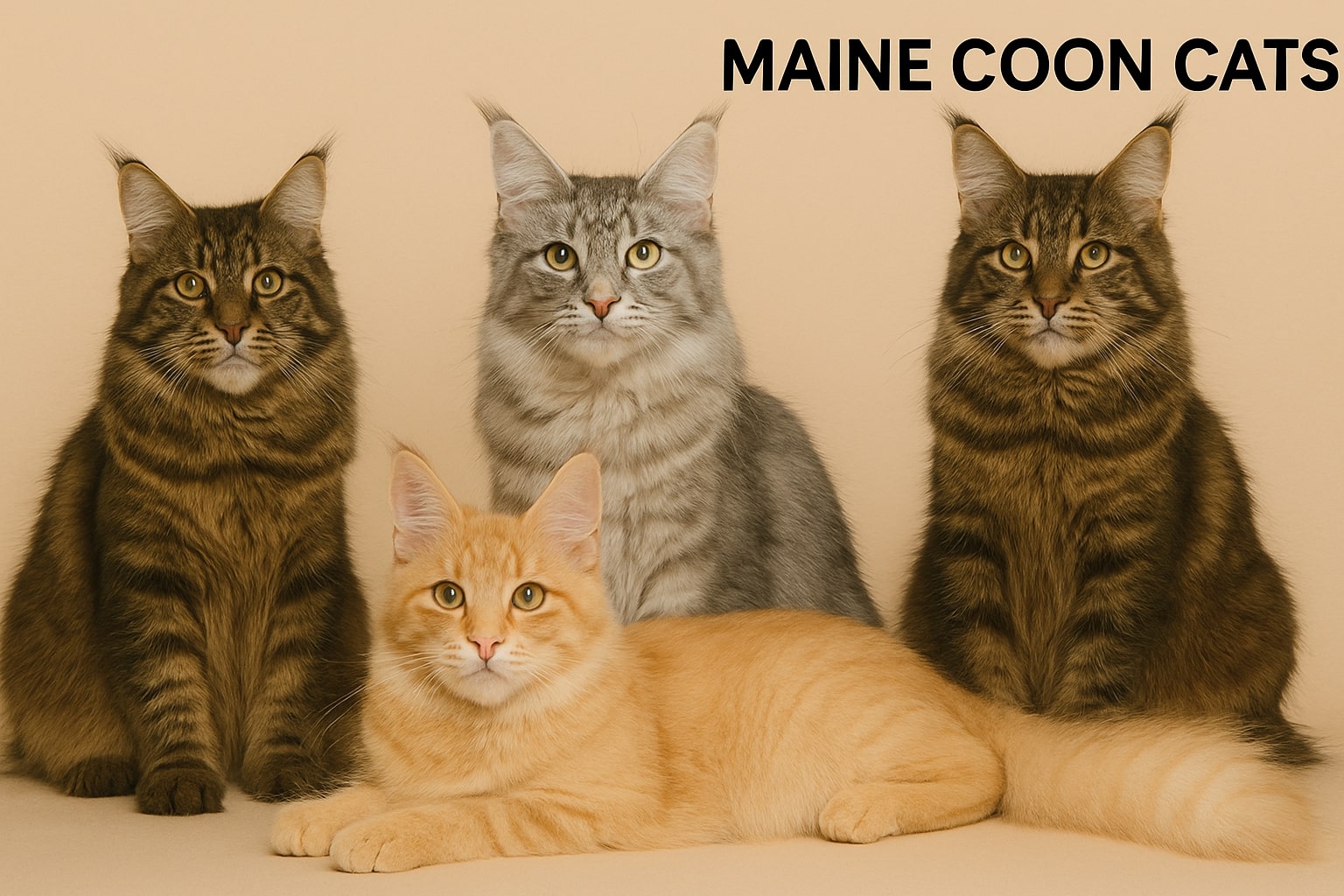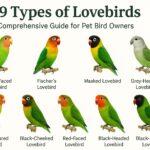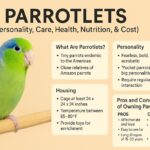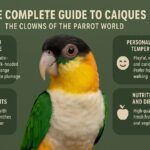The Maine Coon cat stands as one of the most remarkable domestic cat breeds, combining impressive size with a friendly disposition that has won the hearts of cat enthusiasts worldwide. In 2023, this magnificent breed surpassed the Exotic to become the second most popular pedigree cat globally, a testament to its enduring appeal and lovable nature.
Native to the United States and recognized as the official state cat of Maine, these magnificent felines have earned their reputation as “gentle giants” through their substantial size and incredibly sweet temperament.
The Fascinating History of Maine Coon Cats
The Maine Coon holds a special place in American cat fancy as one of the oldest natural breeds in North America. Their existence, however, became threatened in the early 20th century when long-haired breeds from overseas gained popularity. Fortunately, dedicated breeders preserved this remarkable cat, leading to its current status as a beloved breed worldwide.
Origin Stories and Folklore
The true origins of the Maine Coon are shrouded in mystery, giving rise to several colorful legends. One popular myth suggests these cats resulted from crossbreeding between domestic cats and raccoons – biologically impossible but perhaps inspired by the Maine Coon’s bushy, ringed tail. Another tale proposes that Maine Coons descended from Norwegian Forest cats that arrived on Viking ships around 1000 CE.
Perhaps the most romantic legend involves Marie Antoinette, the doomed Queen of France. According to this story, before her execution in 1793, Marie attempted to escape to America with the assistance of Captain Samuel Clough.
While the queen never completed the journey, her six prized Turkish Angora or Siberian cats supposedly reached Wiscasset, Maine aboard Clough’s ship. These royal felines then interbred with local cats, eventually developing into the Maine Coon breed.
Scientific Understanding
Most cat historians and geneticists believe the Maine Coon naturally evolved from short-haired domestic cats and long-haired breeds brought by European settlers. These cats adapted to the harsh New England climate over generations, developing distinctive features that helped them survive cold winters.
Physical Characteristics
Impressive Size and Structure
Maine Coons are notably large cats, with males typically weighing between 9-22 pounds and females slightly smaller. They have robust, muscular bodies with rectangular proportions, broad chests, and substantial legs that contribute to their imposing presence.
Their body structure reflects their working cat heritage – powerful but agile, designed for hunting in challenging environments. Maine Coons mature slowly, often taking up to five years to reach their full size and development.
Distinctive Coat
The Maine Coon’s coat serves as one of its most recognizable features. This weather-resistant fur developed as protection against the harsh Maine winters. Their coat is dense and textured, shorter on the head, shoulders, and legs but longer along the back and sides.
Maine Coons display distinctive “furnishings” – extra fur in strategic locations including:
- Long belly fur for protection when navigating through snow
- Shaggy “trousers” on their hind legs
- A noticeable frill or ruff around the neck
- Tufted paws that act as natural snowshoes
Their magnificent tails – broad at the base and tapering to a point – are covered in flowing fur that creates a plume-like appearance. These bushy tails served an important purpose for their ancestors, who could wrap them around themselves for additional warmth in cold weather.
While Maine Coons come in almost all colors and patterns, the brown classic or mackerel tabby represents the most common coloration.
Facial Features and Other Traits
Maine Coons have medium-sized, square heads with prominent cheekbones and large, expressive oval eyes. Their ears feature one of their most distinctive characteristics – large, well-tufted ears that are wide at the base and taper to a point, often topped with lynx-like tufts.
Temperament and Personality
The True Nature of the Gentle Giant
Despite their somewhat wild appearance and substantial size, Maine Coons possess exceptionally gentle temperaments. They have earned their reputation as sweet-natured cats who rarely display aggression. According to Maine Coon Central, these cats only show aggression when they feel threatened; their default disposition is friendly and patient3.
Social Behavior
Maine Coons thrive on social interaction. They enjoy spending time with their families and often follow their humans from room to room. While not typically lap cats, they prefer being near their people rather than alone.
Male Maine Coons generally display more immediate friendliness with strangers, while females may take longer to warm up to new people. Both genders form strong bonds with family members and show remarkable loyalty to their human companions.
Exceptional with Children and Other Pets
One of the Maine Coon’s most appealing traits is their excellent relationship with children. They display remarkable patience, often tolerating activities like dress-up or being carried around. They establish boundaries gently, using soft pats with sheathed claws when needed rather than aggressive responses.
Maine Coons generally get along well with other pets, including dogs and other cats. Their playful and friendly nature helps them form fast friendships with other animals in the household. However, their natural hunting instincts mean they may not be suitable companions for smaller pets like birds or rodents.
Unique Communication
Unlike many vocal cats, Maine Coons typically communicate with distinctive chirps and trills rather than meows. These gentle vocalizations serve as their way of getting attention from their humans, adding to their charm and unique character. This quieter communication style contributes to their reputation as polite and undemanding companions.
Intelligence and Playfulness
Maine Coons possess high intelligence and maintain playful attitudes well into adulthood. They enjoy interactive toys, puzzle feeders, and games that challenge their minds. Many Maine Coon owners report their cats learn tricks easily and can even be trained to walk on leashes or play fetch – behaviors more commonly associated with dogs.
This combination of intelligence, playfulness, and social behavior has led to Maine Coons often being described as having “dog-like” characteristics, making them appealing even to people who don’t typically consider themselves “cat people”.
Proper Care for Maine Coon Cats
Nutritional Needs
Maine Coons require specialized nutrition to support their large frames and active lifestyles. According to veterinary nutritionists, the ideal Maine Coon diet should be:
- High in protein (over 50%)
- Moderate in fat (around 20%)
- Low in carbohydrates (between 0% and 3%)
Most veterinarians recommend wet food as the primary diet for Maine Coons. These large cats need approximately four grams of animal protein per kilogram of body weight, which translates to roughly 36-45 grams of protein daily.
Quality protein sources for Maine Coons include:
- Chicken and turkey
- Beef
- Fish (especially tuna, salmon, and mackerel)
- Some seafood
Grooming Requirements
Despite their long, thick coats, Maine Coons require less intensive grooming than many other long-haired breeds. Their fur resists matting naturally, but regular brushing (2-3 times weekly) helps control shedding and prevents hairballs. During seasonal shedding periods, daily brushing becomes beneficial.
Special attention should be paid to the areas behind the ears and under the legs, where mats can occasionally form. Many Maine Coons enjoy water, making occasional bathing easier than with typical cats.
Exercise and Environmental Needs
These large, active cats benefit from ample space to move and explore. Providing climbing opportunities through cat trees and perches allows them to exercise and observe their surroundings from elevated positions. Interactive toys that stimulate their hunting instincts help keep them physically and mentally engaged.
Maine Coons typically enjoy interactive play sessions with their humans. Activities that mimic hunting – like chasing toys or playing fetch – provide excellent exercise while strengthening the human-cat bond.
Health Considerations
Maine Coons generally enjoy good health with a typical lifespan of 12-15 years. However, like all purebred cats, they have predispositions to certain health conditions that potential owners should understand.
Common Health Concerns
According to veterinary sources, some health issues more common in Maine Coons include:
- Hypertrophic Cardiomyopathy (HCM) – This genetic heart condition causes thickening of the heart muscle. Responsible breeders screen their breeding cats for this condition.
- Hip Dysplasia – More commonly associated with large dogs, hip dysplasia can affect Maine Coons due to their size. This condition involves abnormal formation of the hip socket.
- Spinal Muscular Atrophy (SMA) – A genetic condition causing the loss of motor neurons in the spinal cord, resulting in muscle weakness primarily in the hindquarters.
- Polycystic Kidney Disease (PKD) – A hereditary condition where cysts form in the kidneys, potentially leading to kidney dysfunction over time.
Preventative Care
Regular veterinary check-ups remain essential for Maine Coon health maintenance. Their large size makes them prone to joint issues as they age, so maintaining an appropriate weight helps prevent additional stress on their joints.
Dental care represents another important aspect of Maine Coon health maintenance. Regular tooth brushing and professional cleanings help prevent periodontal disease, which can affect overall health.
Maine Coons as Family Companions
Maine Coons make exceptional family pets for several reasons. Their patient, gentle nature makes them suitable for households with children of all ages. While they enjoy attention, they’re not typically demanding cats, adapting well to various family dynamics and schedules.
Their sociable disposition means they generally accept visitors graciously, though some females may initially be reserved with strangers. Many Maine Coon owners report their cats greet guests at the door, showcasing their friendly, outgoing personalities.
Despite their independent capabilities, Maine Coons form strong bonds with their families and can become lonely if left alone for extended periods. Households where someone is home frequently or where other pets provide companionship offer ideal environments for these social cats.
Interesting Facts About Maine Coons
- A Maine Coon named Barivel holds the Guinness World Record for the longest domestic cat, measuring 47.2 inches from nose to tail tip.
- Maine Coons are natural hunters who historically earned their keep as mousers on farms and ships, which contributed to their worldwide spread.
- These cats are often called “snowshoe cats” because of their large, tufted paws that help them walk atop snow without sinking.
- Many Maine Coons display polydactylism (extra toes), a trait that may have provided additional stability on ships and in snowy conditions.
- Unlike most cats who dislike water, many Maine Coons show fascination with water and may even join their owners in the shower or play in their water dishes.
Conclusion
The Maine Coon represents a perfect blend of impressive physical attributes and gentle temperament. Their evolution in the challenging climate of New England produced cats with both the physical adaptations to survive harsh conditions and the friendly disposition needed to thrive alongside human companions.
Their rising popularity comes as no surprise to those familiar with the breed. Maine Coons offer the independence typical of cats combined with social traits often associated with dogs, creating companions that appeal to a broad range of pet owners.
For those considering adding a Maine Coon to their family, understanding their unique needs and characteristics helps ensure a harmonious relationship. While they require some special considerations due to their size and coat, their affectionate nature and adaptable personalities make them wonderful additions to many households, truly earning their reputation as America’s gentle giants.
- Parrotlets (Personality, Care, Health, Nutrition, & Cost) - June 20, 2025
- Caique (Personality, Care, Health, & Nutrition) - June 20, 2025
- The Complete Guide to Golden Retrievers - June 9, 2025















